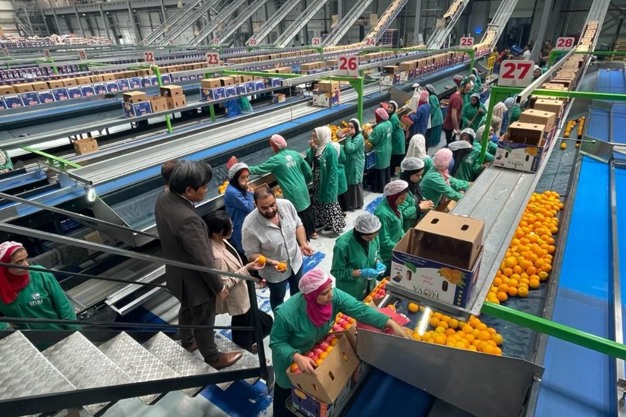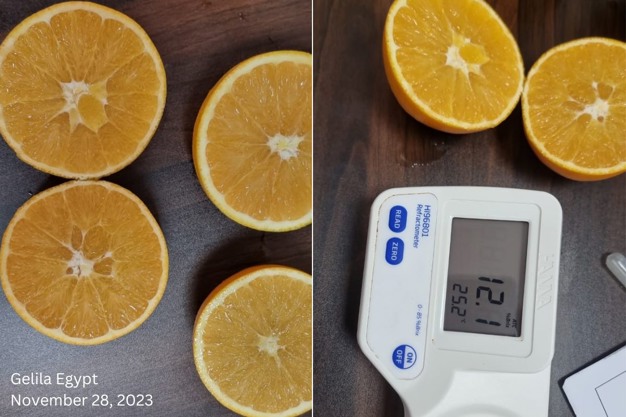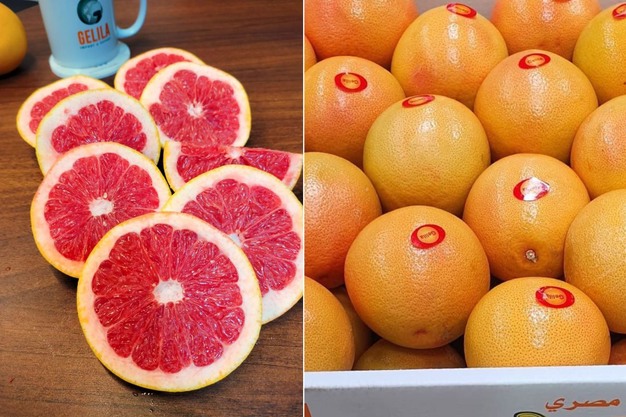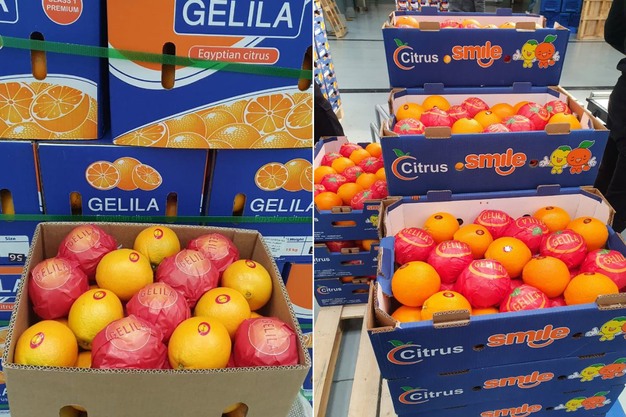The upcoming citrus season will be much easier from a commercial point of view for Egyptian exporters, helped by improved sizes and low competition, according to Eslam Gelila, CEO of Gelila.

Eslam says, "Last season was very challenging to navigate. However, everything has improved this year - size, quality, and demand - for all citrus fruits. This promises to be an easier campaign than the season before. Two weeks from harvest, brix is currently at 12% and higher, and should reach 13 as we harvest. Coloration has reached 80-90% in many farms."
One of last season's biggest challenges was the abundance of small-sized fruit, which had a major impact on prices and destinations. However, this year the distribution of sizes is well balanced, says Eslam, with 20% of small sizes, 50 of medium sizes, and 30% of large sizes for the navel oranges that open the season. "This will enable us to recover our share in markets that prefer large sizes, such as China, where orders were down last season," adds the exporter.

The Egyptian season is starting as the South African season finishes, and Morocco and Spain have had a failed start to their campaign due to drought, which is likely to impact their entire season. "We remain in the market with Turkey, which has more citrus volumes than last season but has quality concerns, judging by the complaints we're currently seeing on the market, and Greece, with low volumes."
"We're, therefore, expecting greater demand from France, Greece, Germany, and Italy due to the drop in Spanish production. We're already seeing strong demand even before the start of the campaign from the Netherlands, the re-export hub for the entire Europe, and this will add to our traditional markets such as Russia and Saudi Arabia," adds the exporter.
The drop in production in Morocco and Spain will leave the ground for Egyptian exporters in markets where they don't normally export in large volumes, says Gelila "This is the case for South America, the Philippines, and Canada."

Asked about claims by Spanish growers' unions that black mold was found in Egyptian citrus, Gelila replies, "We're used to this kind of claims, which are aimed not only at Egypt but at any country that competes with Spanish growers. We have not observed the presence of any disease in citrus fruit, nor have we received any claims to that effect. The Egyptian sanitary authorities are very strict, and our fruits are exported worldwide. If there was black mold, everyone would know about it."
"At Gelila Company, we acquired new certifications such as "FSSC" and "ICS," in addition to the existing certifications, including ISO, GLOBAL GAP, SEDEX, GRASP, and BRCGS, which underscore our strong dedication to food safety and the quality of our products"

The exporter concludes, "We proudly export many fruits and vegetables on a daily basis, such as oranges, lemons, onions, mangoes, pomegranates, grapes, grapefruits, mandarins, garlic, potatoes, sweet potatoes, iceberg lettuce, bell peppers, and others. We continue to enhance the quality of these products with advanced production facilities and meticulous monitoring techniques. We take food security seriously and deliver risk-free products, providing our customers with a distinctive and secure consumption experience."
Eslam Gelila
Gelila
Tel. +20 100 000 4540
Email: ceo@gelila-eg.com
www.gelila-eg.com
